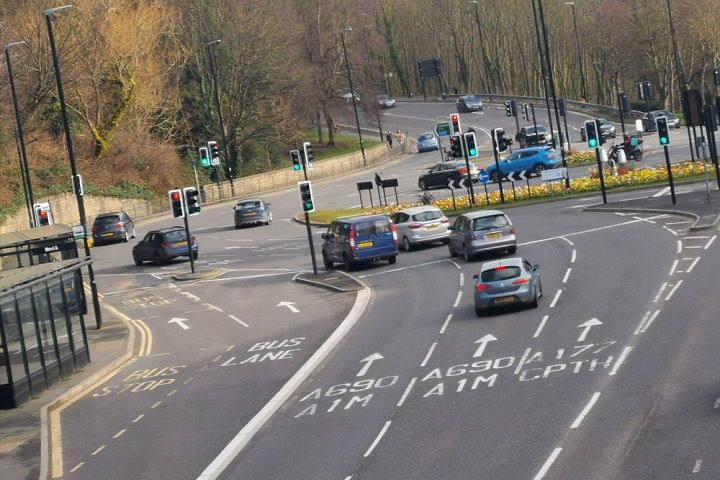
Drivers will benefit from a further £38.3 million investment into improving the safety of 17 of the most high risk roads in England, the DfT has announced.
The funding, which comes through the Safer Road Fund, will deliver improvements including:
- designing new junctions and roundabouts
- improving signage and road markings
- new road surfacing and landscape management
- improved pedestrian crossings and cycle lanes
The DfT says this round of funding is expected to save 385 lives over the next 20 years, as well as reduce congestion, improve journey times and lower emissions.
It comes on top of the £147.5 million already invested through the fund, to deliver improvements on 82 high risk roads.
Mark Harper, transport secretary, said: “Britain’s roads are some of the safest in the world, but we are always looking at ways to help keep drivers and all road users safe.
“As part of the Government’s plan to improve roads across the country, we’re providing an extra £38 million so that local councils in England have the support they need to keep everyone safe while reducing congestion and helping to grow the economy.”
According to the Road Safety Foundation, it is estimated that all tranches of the Safer Road Fund will save nearly 2,600 fatal and serious injuries over the next 20 years.
Once the whole life costs are factored in for the schemes, the overall benefit cost ratio of the investment is estimated at 5:3, meaning for every £1 invested, the societal benefit would be £5.30.
Dr Suzy Charman, executive director of the Road Safety Foundation, said: “The Safer Roads Fund is a transformational initiative for road safety and for the local authorities receiving funds.
“It makes it possible for road safety teams across the country to proactively address risk of death and serious injury for all road users on these routes.
“Systematic changes have already had a big impact on road death and serious injury, for example, seat belts and airbags protect lives when crashes happen.
“In the same way, we can design roads so that when crashes happen people can walk away – by clearing or protecting roadsides, putting in cross hatching to add space between vehicles, providing safer junctions like roundabouts or adding signalisation and/or turning pockets, and including facilities for walking and cycling.”
According to the DfT this is part of the £185.8 million investment which is estimated to prevent over 2,600 fatal and serious injuries over the next 20 years. This means an average cost of £71,500 per KSI prevented. It is good to see the DfT hailing this level of return on investment.
It is also worth comparing this to the expected 4,950 [1] reduction in KSIs over the next 20 years from the national 20mph default limit in Wales. The cost of is £33.5 million, and hence results a cost of just £6,767 per KSI.
Well done Welsh Gov for being 10 times more cost effective in reducing death and injury on the roads by means of setting 20mph limits the smarter way as a national default.
If only UK Gov had some vision on making our urban places places for living rather than driving.
You can read our response to the latest DfT update to its Setting Local Speed limits guidance at https://www.20splenty.org/dft_guidance_2024
[1] Transport Research Institute. Technical Paper 101 – The value of prevention – casualty reductions in switching from a 30mph to 20mph speed limit default in Wales
https://blogs.napier.ac.uk/tri/wp-content/uploads/sites/56/2022/11/TRI-Technical-Paper-101.The-value-of-Prevention.AD_.pdf
Rod King, Lymm
--8
They say: “launching the largest real-world randomised controlled trial of interventions to improve the safety of learners and newly qualified drivers”
It’s actually starting!
I’ve been advocating RCTs (randomised controlled trials) for years and at last someone has listened!
If RCTs were used for ALL interventions, we would at last start to actually save lives.
dave finney, slough
+11